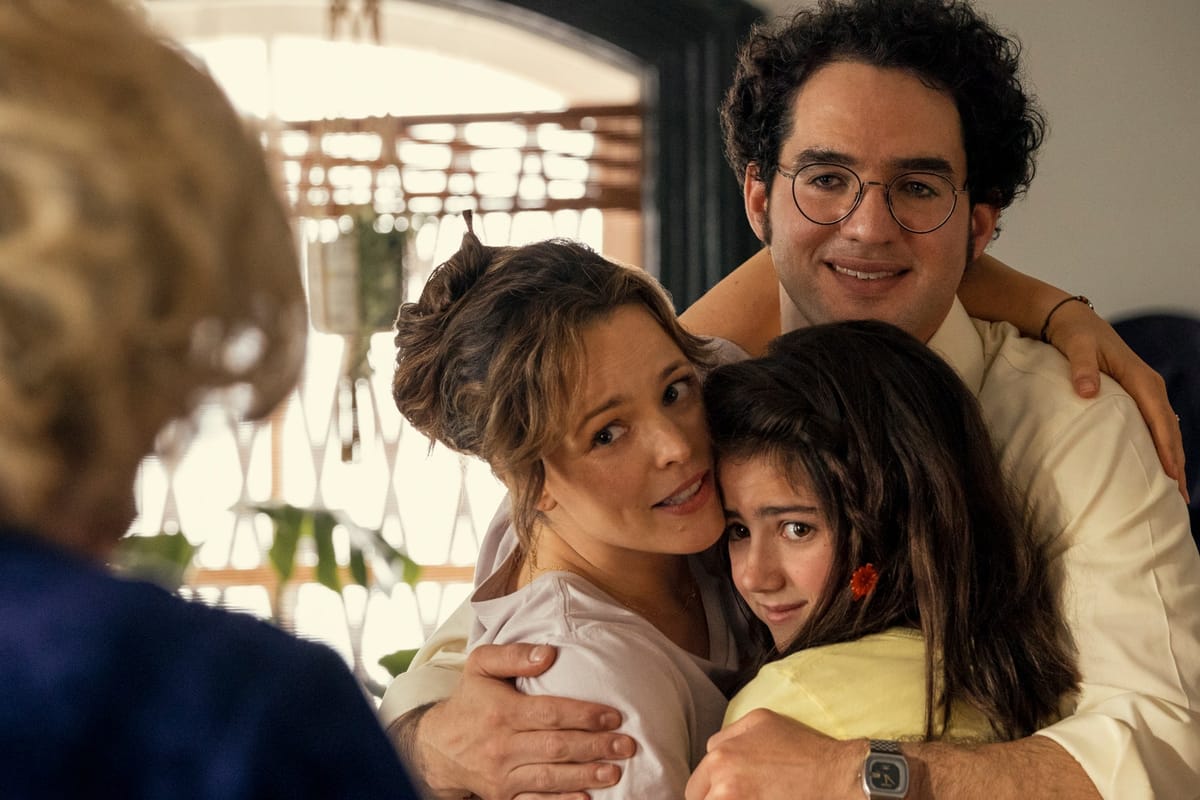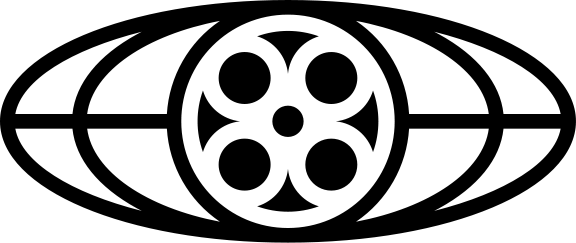Are You There God? It's Me, Margaret.
Navigating societal pressure to be something you're not

I have grown to hate the the phrase “It’s a kids’ movie.” On its own it’s fine, as it simply describes the target audience, which gives you a sense of what to expect. But all too often, it’s used in defense of a mediocre film. The sentiment being that because it’s aimed at kids, it doesn’t need to be deep or thoughtful or complex or nuanced. It doesn’t need to be clever or humanizing or challenging or any of that; it just needs to keep them entertained. This is the junk food philosophy of children’s entertainment, a condescending and insulting perspective that sees kids as problems to solve rather than people (albeit not yet fully formed ones). This discussion played out online most recently with The Super Mario Bros. Movie, with those defending it overwhelmingly in the majority and praising its references and goofy characters. Wouldn’t you want kids to devour more enriching content at exactly the time they’re most open and malleable?
Are You There God? It’s Me, Margaret. does not fall into that trap. It’s incredibly warm and charming, while also confronting the realities of being a preteen. It asks questions about religion and fitting in and identity and what it means to define yourself by who you think the world expects you to be. We’re following Margaret (Abby Ryder Fortson), initially on her way back from camp after a wonderful summer, then quickly watch her smile turn to anger at the revelation they’re moving to the suburbs. As she enters sixth grade, she now must find her footing at a new school with new people, and simultaneously navigate what it means to be on the verge of her teenage years. She quickly falls in with her neighbor Nancy (Elle Graham) and friends, teaching her further lessons about loyalty and judgement and honesty.
I never read the book, so I can’t compare this to that. I know the book is renowned for…well, for many reasons, but one is its authenticity and frankness. And while I experienced puberty from the male perspective, the movie definitely captured the vibe of being that age very well. The awkwardness around your crush, asking what you think are simple questions and not picking up on why mom and dad are waffling, feeling pressured to go along with the group despite your own opinions and it leading you to feel ashamed. Even if the things I experienced were different, the movie’s events and portrayals align with what I’ve heard from women in my life recounting that time.
It portrays a girl with a rich internal life, her own struggles and opinions and feelings and drives. She may hide her crush from her friends, but she doesn’t deny it to herself. She’s desperate to grow up, and to make new friends, both of which are expressions of her true goal: to figure out who she is and what her place is in the world. It sounds grandiose and grown-up, but it helps ground your sense of self, helps you set goals (even informal ones), and gives you a way to relate to others. Yes, where and how you fit it will change a bunch over your teen years, but that’s fine. The journey is an enriching one, which deepens your connection with who you are and how you feel. We watch Margaret walk this road and come to such realizations, and even make some crucial changes to get closer to the person she wants to be.
This is paralleled by her mother’s attempts to fit into the role of housewife, despite her love of teaching. Whereas Margaret is resistant initially, Barbara (Rachel McAdams) throws herself into suburban living. She seems excited to own a house, and immediately takes on a bunch of volunteer work for the PTA. But we also catch glimpses of how this life is wearing her down. She, too, is buried under the weight of what she feels is expected of her, and try as she might to keep it together, the cracks start to show.
Even Margaret’s grandmother, Sylvia (Kathy Bates), gets a minor arc in this vein. It’s not as well fleshed out, but her desperation at her granddaughter moving to the suburbs reveals that she is really a very lonely woman, and is questioning what her place is in the world.
Because not only is it about discovering where and how you fit, but also external forces pushing you in a direction you’re not in favor of. This is especially true of society’s messaging to women, and even more so in the 1970s, when this story takes place. Both face peer pressure in its different forms, but all of it comes from people who themselves have been instructed by various elements of society how they should act. From Barbara trying to cook to Margaret buying a bra to her friend Nancy (Elle Graham) tearing down others for falling outside the norm, all of it is the result of women and girls being pushed in a certain direction.
For those without knowledge of the book (like me), you might be wondering where the title comes into play. Despite being raised without religion, she still picked up the idea of prayer, and so as she starts to use it as a way of appealing to the forces beyond her control. From big life events like asking for the move to be stopped, to more personal growth opportunities like asking for boobs. This quickly dovetails with a research project at school on religion, which she uses as a chance to tour the various religions in her community in an attempt to figure out which one is for her. It goes about it in a very earnest and honest way, which is part of why the book remains incredibly controversial amongst some communities to this day. I imagine the book goes into more depth due to time constraints, but the movie makes no attempt to soften it, even as the tour is somewhat shallow; it is only the backdrop, after all.
If it seems like I’m staying kind of vague and abstract when talking about the film, that’s only because its power comes from its collection of moments, of snapshots into these peoples’ lives, and from the minutia that makes up their world. Their relationship to their world and themselves plays out beautifully on screen, and you feel every one of their ups and downs. It’s a warm and hilarious and touching film, and displays an incredible humanity even when the characters are at their lowest. From an individual perspective, it’s a very relatable and recognizable world, even if you didn’t grow up in an idyllic middle-class predominantly white suburb. While the specifics likely hit harder if you did (like me), people are largely similar from place to place.
All of this works even more because despite already being a very strong script, the acting serves to elevate it even further. Rachel McAdams is wonderful (as usual), Benny Safdie very comfortably and easily puts on the dad vibes, which contrasts with the one other role I’ve seen him in, Good Time. But the title character is a cut above them all. Abby Ryder Fortson absolutely nails this role. Margaret needs to be someone you always sympathize with, even as she at points betrays herself. She needs to be someone whose internal life we understand to keep us grounded, because being a preteen is to have who you are change constantly. Through facial expressions and general body language, a comfortable laugh and a furrowed brow, Fortson is able to communicate everything with apparent ease, despite the hard work I’m sure was involved. She’s already been around Hollywood a bit, most notably playing Cassie in the first two Ant-Man movies, but this appears to be her first leading role. I hope everyone takes note and it’s not her last. But given the reception this movie is receiving, I’m not concerned.
I didn’t have much in the way of expectations for this movie. I hadn’t seen any trailers or read the book or anything. I didn’t know who was in it. I only knew it was about a young girl, was based on a super popular book, and had received great reviews in its first week of release. And yet I walked out absolutely loving it. It’s one of the biggest surprises so far this year for me, not due to low expectations but due to no expectations. I truly think this deserves to become a kids classic, and one of those which their parents also enjoy.
One final related topic to discuss.

This movie is rated PG-13. The characters are 11 or 12. Meaning the MPA thinks some of its material isn’t suitable for the people experiencing it. Sometimes, that’s warranted; see Role Models. But this is not some raunchy, risque farce. This is a family comedy centered on a girl beginning puberty. Yes, there are discussions of menstruation and “sanitary napkins” and bras and kissing. But these are hardly topics relegated to the realm of teenagers. Many kids will begin experiencing them younger, and they need some baseline of understanding is incredibly useful to navigate that minefield in a healthy way. I get that many parents don’t feel comfortable talking about their child’s development. They don’t want to field the questions that arise, which is where the “I’ll tell you when you’re older” sentiment comes from. And listen, I don’t have kids, so far be it from me to tell parents what to do. But wouldn’t you want to arm them with all the knowledge and understanding you can about themselves and the world they live in?
Of course, American prudishness is legendary. We barely have sex ed in public schools, and every attempt to begin it before high school is met with incredible backlash, no matter the community. Parents hamstring the school system’s ability to prepare their students in the name of having these conversations themselves. And yet, outrage and attempts to ban books like this one belie their lack of interest in having them at all.
If you really think you’re the best person to discuss puberty and sex and related topics with your child, isn’t watching some movie or TV show and having a conversation afterwards a pretty easy way to do it? You can have it in the context of talking about the thing, and play off of what naturally comes up. My own parents were pretty hands off when it came to puberty and sex ed stuff. But the conversations we did have were after they took me to movies which dealt with more adult topics.
Maybe I’m overreacting a bit. After all, PG-13 doesn’t even prevent younger kids from seeing it alone. And in the age of streaming, ratings mean less than ever. But it just seems messed up to me. It reinforces this idea that puberty and sex are taboo. We’re perfectly comfortable with violence and death and darkness in kids’ movies. Beetlejuice, some of the Star Wars prequels, even Who Framed Roger Rabbit?! I’d argue all are less appropriate for children and families, and yet this one we think needs PG-13 is the one which discusses periods.
Maybe it’s just become the default rating. There are a lot more PG-13 movies coming out this year, almost four times as many rated-R films. Has the MPA become more conservative? I dunno.
In any case, my point is just that we need to stop being scared of exposing kids to real-life topics, especially ones which relate so directly to themselves.